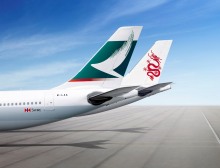- UID
- 12602
- 热情
- 237
- 人气
- 15
- 主题
- 0
- 帖子
- 5770
- 精华
- 10
- 积分
- 3042
- 分享
- 0
- 记录
- 0
- 相册
- 0
- 好友
- 0
- 日志
- 0
- 在线时间
- 1100 小时
- 注册时间
- 2001-3-2
- 阅读权限
- 30
- 最后登录
- 2014-7-9
  
升级    69.47% 69.47% - UID
- 12602
- 热情
- 237
- 人气
- 15
- 主题
- 0
- 帖子
- 5770
- 精华
- 10
- 积分
- 3042
- 阅读权限
- 30
- 注册时间
- 2001-3-2


|


Revered, respected and reviled as a Prime Minister, William Ferguson Massey was no mean entrepreneur.
William Ferguson Massey was a born entrepreneur. He had the right family background – of dogged ambition and risk-taking – and his family were also immigrant New Zealanders, another criterion for success.
William was born in 1856 in the small market town on Limavady, east of Londonderry. His father, John, was a self-made man, a substantial smallholder, living on 10 acres and leasing part of a nearby farm.
In 1869, when William was 13, John brought the family to Auckland, attracted by the provincial government’s ‘liberal’ land-grant system to self-supporting families. John put his capital into a leasehold farm at Tamaki, just outside Auckland. Smaller holdings were becoming increasingly popular, and farms such as John’s were the SMEs of their day.
In the 1870s and 80s, progressive New Zealand farmers were looking to new export markets, new roads, the subdivision of existing large estates in the South Island and the opening up of bushland in the North Island to provide them with opportunities.
William took up a job as a ploughman at Longbeach Station near Ashburton. John Grigg, his employer, had owned a neighbouring property in Tamaki, and served as role model for William. Grigg was known as a progressive, and Longbeach was a model of developed cropping land, cultivated pasture and improved flocks. Eventually Grigg would sell it off in small blocks.
William watched attentively and saved. In 1876 he returned to Auckland to top up his savings by working for his parents. Then, at age 21, in an astonishing move, he imported one of the earliest steam threshing machines, still a novelty in the United States. He leased out the machine to arable farmers and it was widely used throughout the district.
With his profits, William bought a leasehold farm of 100 acres at Mangere. Over the next decade he continued to buy land. He also began establishing himself as a farmers’ advocate. Settlers clearing their blocks of bush land lacked the time to lobby politicians. They needed leadership from established farmers who understood their problems.
As a self-made farmer and entrepreneur, William had great credibility. He lobbied for roads to smallholdings, becoming a member of the Mangere Road Board. He worked his way up through the leading lobby groups of he time, including the Mangere Farmers Club, which revived the Auckland Agricultural and Pastoral Association. William became president of what was then the only provincial organisation of farmers.
By 1891, when he was elected to lead the National Association – previously the National Liberal Association – William was the recognised spokesman of New Zealand farmers. The association opposed the “socialistic tendencies of Liberal legislation”. William’s well-known values were self-reliance, individualism and private enterprise. His ‘slogan’, used later in electioneering, was: “Every man his own landlord”.
After one defeat (in the Franklin electorate), William was elected as an MP and entered the House in 1894. He was Leader of the Opposition from 1903 and became Prime Minister in 1912. He held office until he died in May 1925, when all schools closed and church services were held throughout the country and at Westminster Abbey.
Depending on your politics, William Massey, the Prime Minister, was either revered and respected (particularly during the war years), or deeply reviled. Most notably he was vilified by some for his role in the Waihi goldmine strike in 1912 and the general strike of 1913. ‘Massey’s Cossacks’ became emblematic of union bashing. Others saw his hard line as courageous and resourceful, and Massey as the saviour of the country’s export trade.
Massey Agricultural College was founded by statute one year after William died, and officially opened in 1928. The choice of the name of a recently deceased prime minister for a new and prestigious learning establishment was an obvious one. Less remarked today (but noted at the official opening), was the aptness of Massey’s earlier background as an entrepreneurial young farmer.
[ 本帖最后由 lukeren 于 2005-10-20 05:18 编辑 ] |
|




